
A Campaign to Redefine “Chinese Restaurant Syndrome” and Stifle Xenophobia
This past year, a campaign to redefine “Chinese Restaurant Syndrome” (CSR) was launched by activists around the world. CSR is actually defined in the Merriam-Webster dictionary as “a group of symptoms held to affect susceptible persons eating food heavily seasoned with monosodium glutamate”. The campaign’s argument is that this definition is not only scientifically false, but that it also upholds the racism and xenophobia that spawned the term in the first place.

The Producers: Integral Farm
The beginning of our “The Producers” series is an interview with Nick Baltos, farmer and founder of Integral Farm in the Umpqua Valley in Roseburg, Oregon. Integral Farm is a small, CSA-driven farm with a major focus on holistic sustainability.

Musings on Mushrooms
Beyond the science of how mushrooms grow and their fantastic nutrition benefits, mushrooms can be a lens through which to view the world. We love to talk about food and culture, and how much our food system has changed along with our societal norms over time. You’ll find ways to learn more about mushroom production as well as a personal essay from Hannah and her history-nerd father who has always had a deep fascination with mushrooms and the magic they hold.

Resource Guide for Supporting Indigenous Food Sovereignty
As we were putting the resources together for our anti-racism guide, we also reflected on the unique position of the American Indian Tribal Nations and their descendants in the United States, and the urgent need to highlight and uplift the voices of Indigenous led organizations working towards food sovereignty as well. Indigenous communities are leading the way to tribal sovereignty, food sovereignty, and the cultivation of traditional foodways—the cultural, social, and economic practices relating to the production and consumption of food. We hope you’ll use this collection of resources as a starting point for learning about Indigenous food and tribal sovereignty, and engage deeply with organizations in your local area and the land where you reside.

Food Policy Councils
Food policy councils (sometimes called “food system alliances” or “food system networks”) have emerged to address gaps in local policies that focus on food. Food policy councils are made up of representatives from many sub-sectors of the food system. Most communities have transportation, housing, or land use policies, but food policies are frequently overlooked or missing all together. Food policy councils are an important way to bring community members together with local governments to promote the social, economic and environmental health of local and regional food systems.

Spices, Sustainably
For most of us, spices are the light switches that illuminate worlds of flavor and creativity in the kitchen. But beyond flavor and complexity, spices are a window into cultural cuisines, regional ecosystems, and millenia-old trade markets, with common threads of colonization and environmental exploitation. In this article, we’ll touch on what spices are, how they came to be a globally traded commodity, and what you can do to support a more direct and equitable spice market.
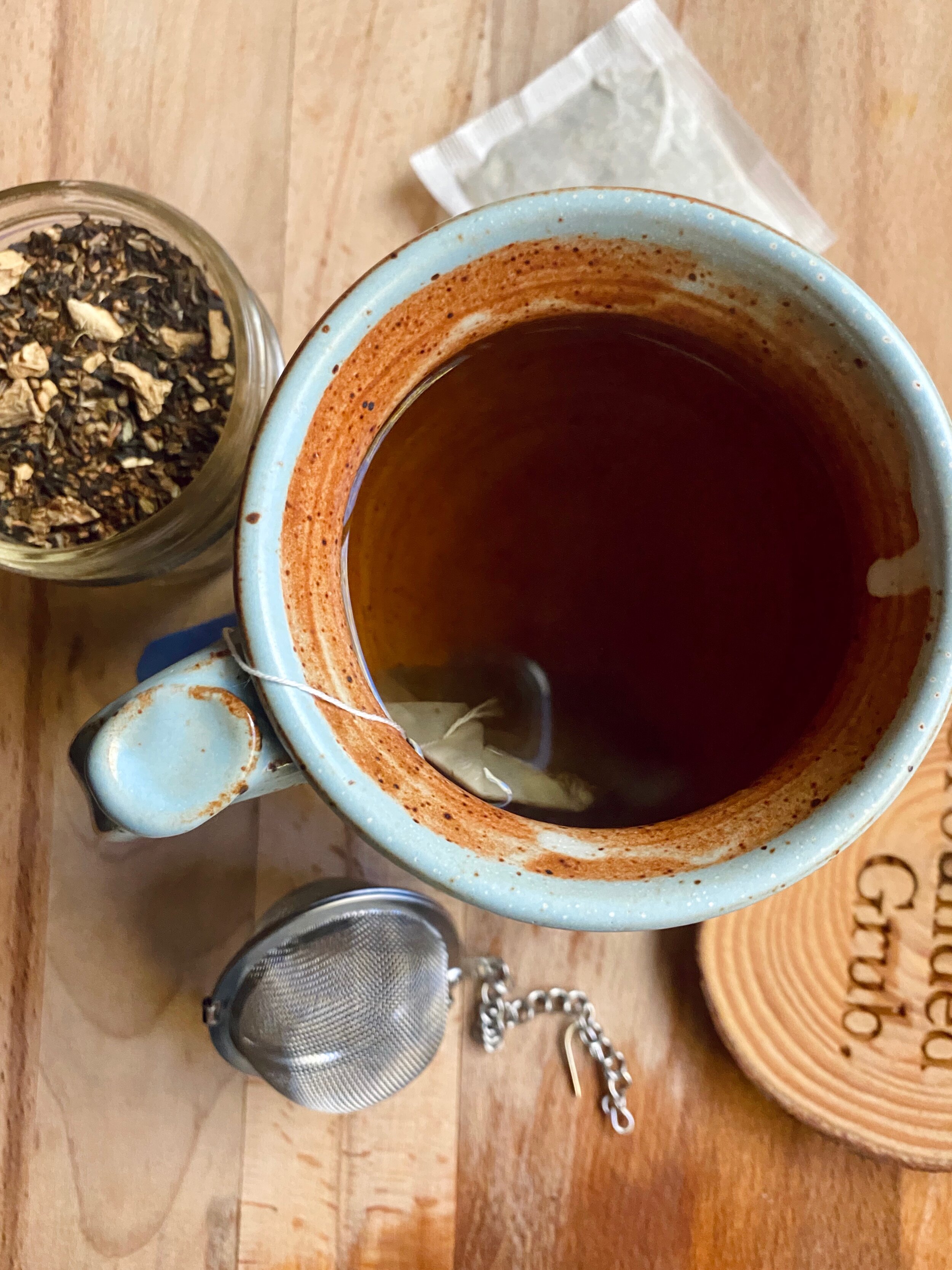
Have a Cuppa Tea
There is nothing quite like a cup of tea to warm me up at literally any time of day. It’s also a great option if you want to drink something warm without the intense jolt of caffeine that can come from a cup of coffee. We love the varied world of tea and how much there is to learn about all of these different types of plants, beverages, and the cultures behind them. We won’t go into too much of the history of tea in this article—there’s simply too much to cover—but we will go into some basics about the different types of tea, the environmental impacts, and things to consider when buying your own tea. Pour yourself a cup and enjoy this read with us!

Bananas: a story of clones and colonization
Bananas are deeply ingrained in American culture and are available in nearly every grocery store around the world. They are often one of the cheapest fruits in the produce aisle and available year round, but it wasn’t always that way. Bananas are the 4th largest crop in the world, with production covering about 477,000 hectares globally and weighing up to 5.4 million metric tons annually, according to the FAO. While bananas are available everywhere, from Walmart to bodegas, their rise to produce-popularity and global dominance is an epic story of global trade, investment, plant breeding and colonization.

“Are You Allowed to Eat That?”- Sustainable Eating as a Personalized Experience
Contributing writer, Colleen Alexander, shares with us a personal essay on the entirely personalized journey of sustainable eating. With so much emphasis on the environmental aspect of sustainable eating, it can be easy to forget that these new eating patterns must be sustainable for us as people too.
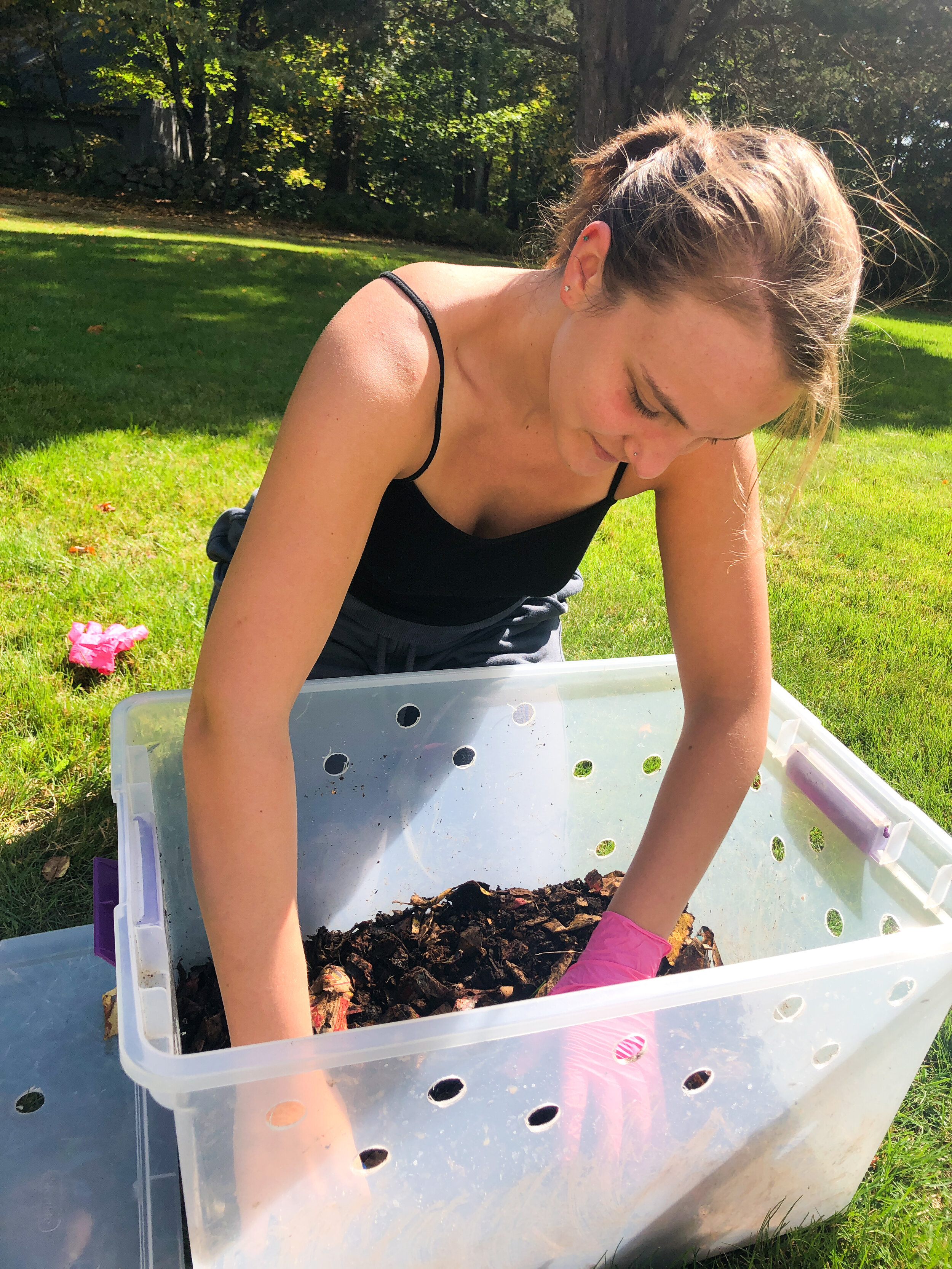
One Man’s Trash: A Guide to Composting
Bona-fide compost expert, Oksana Bihun, breaks-down and demystifies everything you need to know about home-composting! Why you should do it, the different options you have if you decide to dive in, and how to maintain healthy compost for all of your green-thumb needs!

Entomophagy: A New Meaning To “Tasty Grub”
Contributing writer, Xander Balwit, writes about Entomophagy, the practice of consuming insects. While this practice has accompanied us throughout the course of our evolution as the catastrophic effects of climate change are felt more acutely, and as the pandemic continues to expose the fragility of our agricultural system, it is time for Westerners to re-evaluate their perception of entomophagy, and learn how eating insects can improve food systems that are unsustainable and ecologically devastating.

Cracking Open a Few Eggs
Are you vegetarian or flexitarian or whatever-atarian? Eggs can be a wonderful way to add protein to your diet through sustainable sourcing if you are not vegan, but there are often lots of labels without much clarity about what they mean. In this article we’ll cover why someone might opt to include eggs in their sustainable diet, how eggs can be part of a sustainable system. All the labels might leave your brain feeling a bit scrambled, but we hope this article helps clarify things a bit!

Agricultural Carbon Sequestration
In our fight against global climate change, the easiest and most readily available solutions typically come in the form of GHG emission reduction. Unfortunately, if we seek to mitigate anthropogenic climate change to a degree in which our global climate and ecosystems can still recover, we need to do more than limit our GHG emissions. We need to actively remove GHGs, namely carbon dioxide, from the atmosphere. This is where “Carbon Sequestration” comes in. In this article, we’ll discuss how agricultural carbon sequestration works, how it’s being implemented, why it’s an important part in our fight against anthropogenic global climate change, and what the future may hold for it.

Drinking Responsibly: Whiskey
Oh Whiskey. If ever there was a drink clouded in the stigma of being a “manly-man drink only consumed by the saddest and toughest of the manly-men” it’s this notorious spirit. But let us assure you, whiskey is most certainly for everyone.

Drinking Responsibly: Beer
For the fourth part of our “Drinking Responsibly” series, we explore Beer. With its history that covers the entire globe, its huge breadth in variety, and the way it seems to bring people together everywhere, it’s no surprise that it’s such a go-to drink for people around the world.
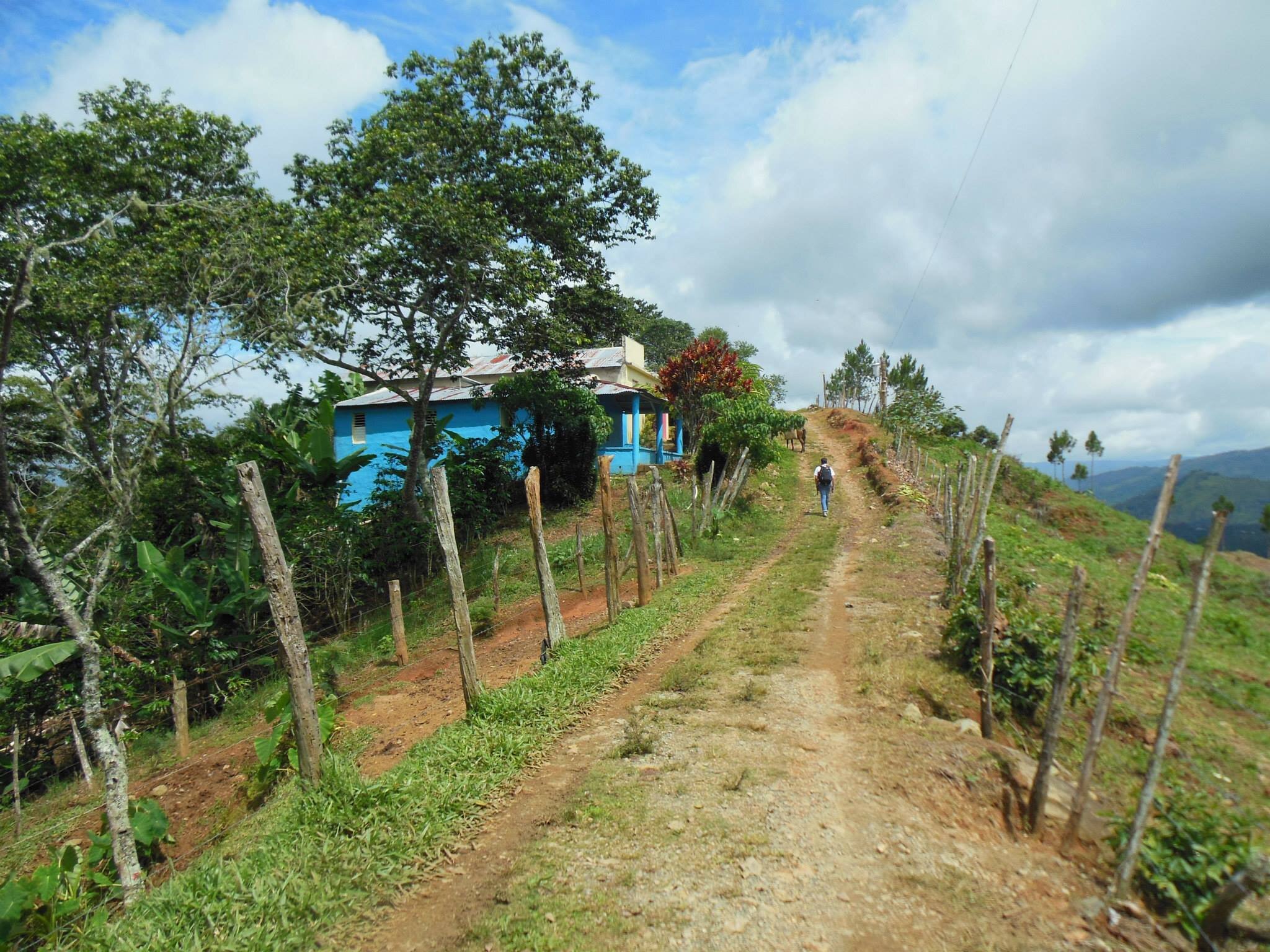
The Real Buzz About Coffee
Contributing writer, Caroline Motzer, writes about her personal relationship with coffee, the way it intertwines through out daily lives, and an experience that opened her eyes to the complex relationship between the farmers who produce the beans and us.

Edible Landscaping, Foodscaping, and Food for Thought

I Dream of Beans
Contributor, Joshua Sadinsky, shares a short memoir of his relationship and eventual love for coffee. From an introductory Starbucks frappucino to his own small-scale coffee roasting business, Josh show us the deep beauty he sees in these beans.
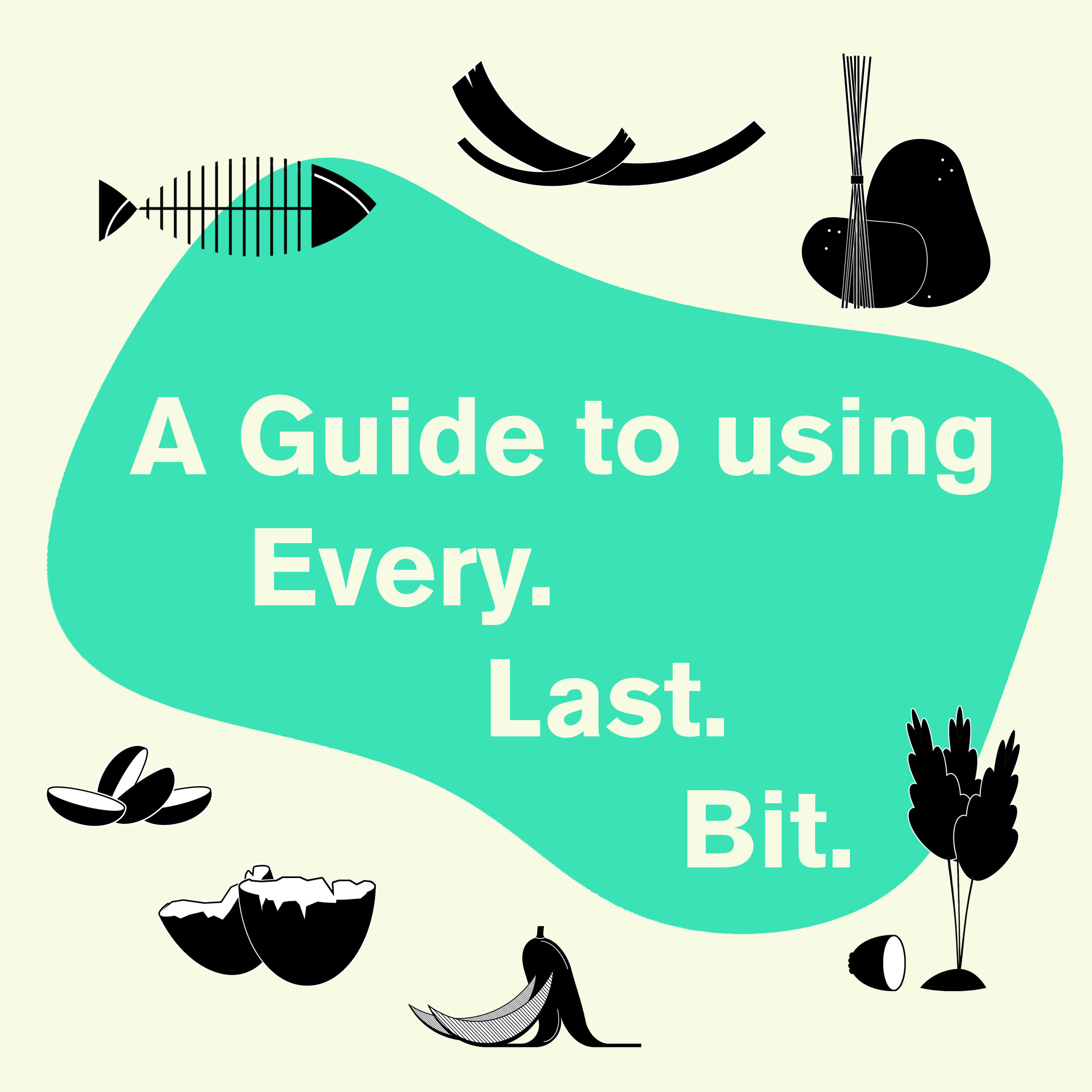
A Guide to Using Every Last Bit
I’m a firm believer that there is no such thing as “food scraps.” I also believe that once you see the world of use you can get out of every last morsel of an onion, a beet, a whole chicken, a head of broccoli, an orange, or an egg (just to name a few), there is simply no going back! You will never look at food that same way.
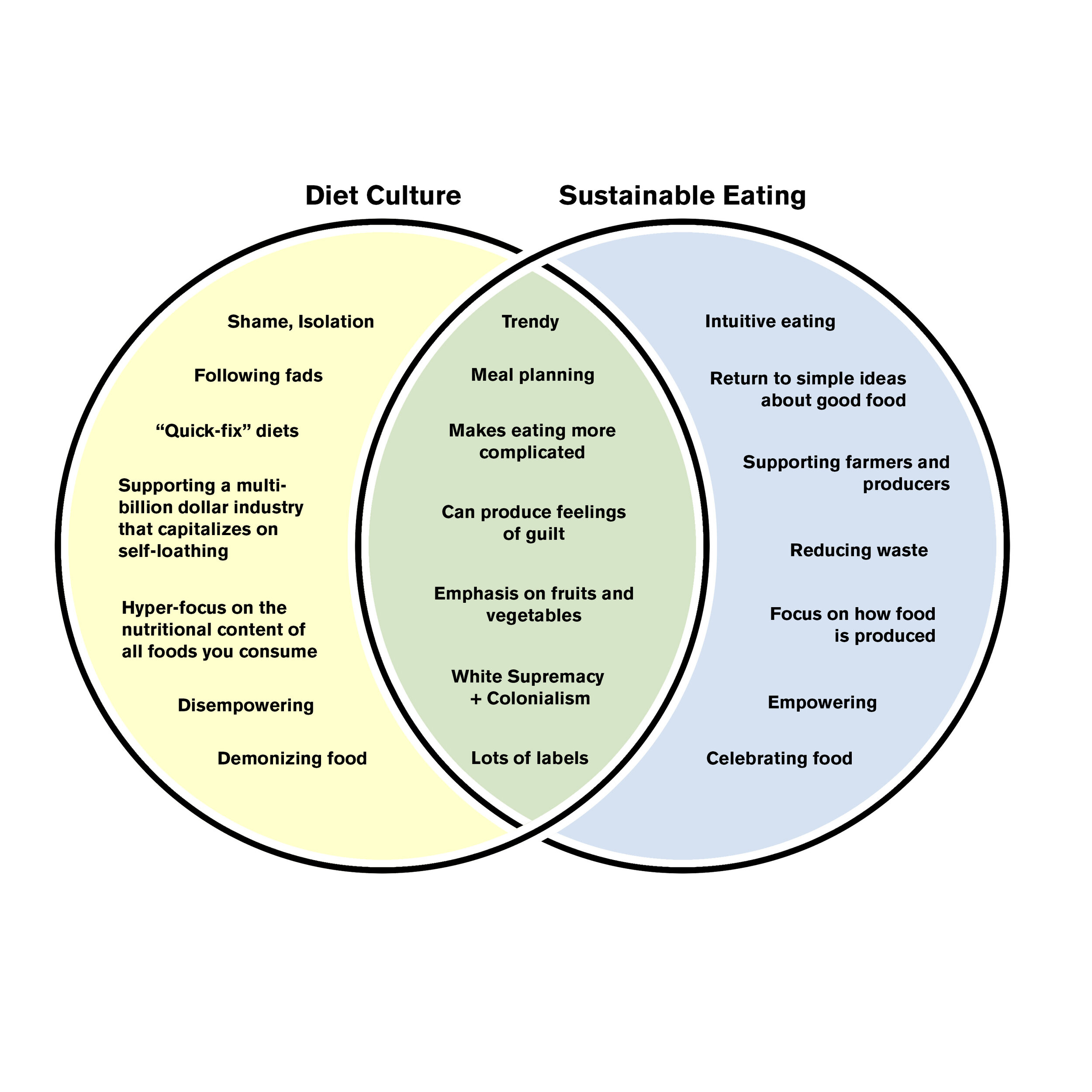
Unpairing Sustainability from Diet Culture
We take diet culture and sustainable eating head on, address how they can seem similar, and how we hope you’ll be able to distinguish them based on core tenets and values. This is an update of a December 8, 2019 article.